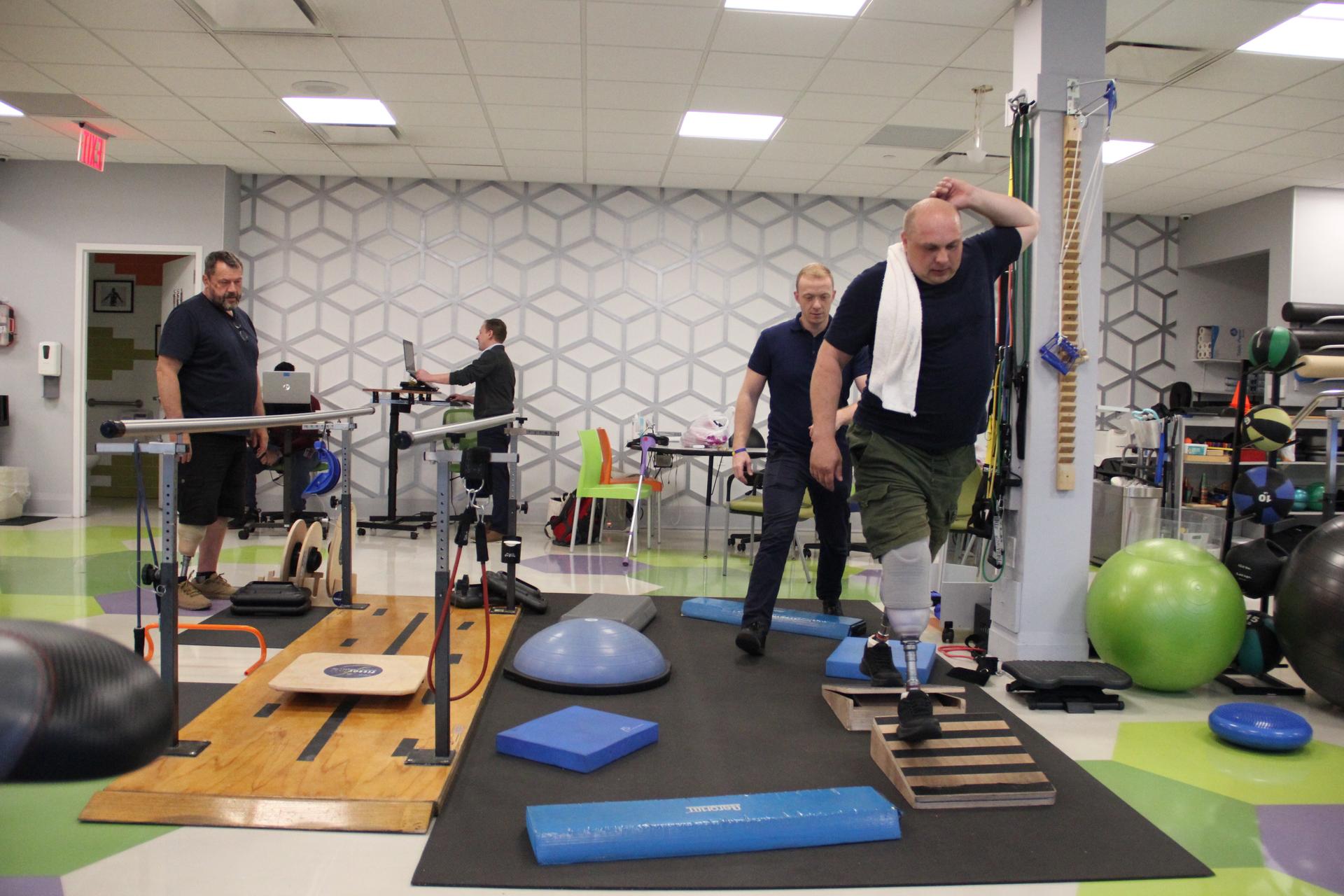As upbeat pop music plays in the background, 38-year-old Vladyslav Sadovnik smiles and practices walking on different obstacles at a rehabilitation clinic in New York.
When Russia’s full-scale invasion of Ukraine began last year, Sadovnik, who was a teacher, decided to join the military and worked as a sapper, detecting and removing mines.
On Oct. 9, near the city of Kherson in southern Ukraine, he was clearing a road.
“I was demining the road and then, on the side, I saw another mine. I went to that area and demined it, and as I was leaving, I stumbled on an anti-personnel mine,” he said.
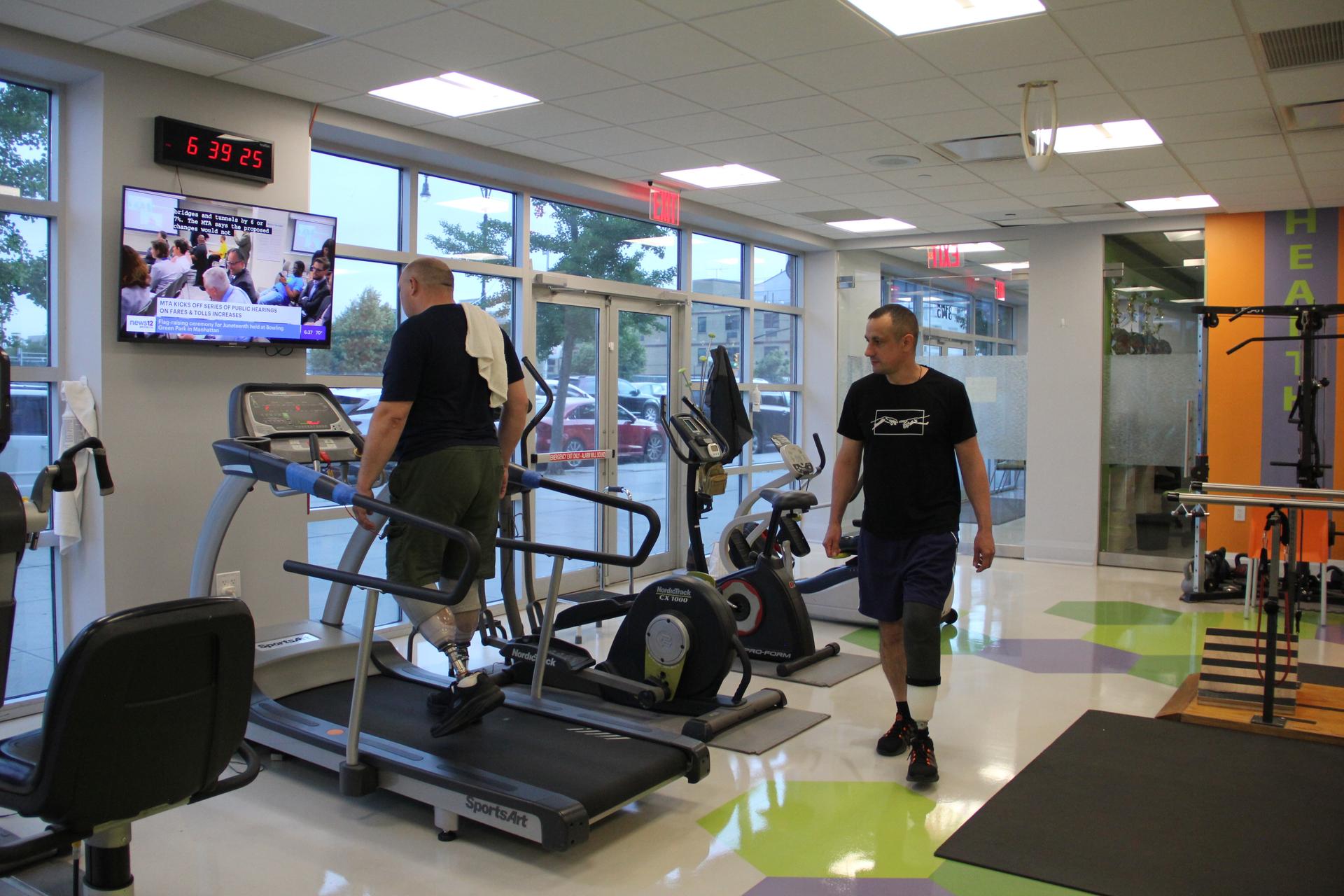
Sadovnik’s fellow soldiers quickly applied tourniquets and he was evacuated, but both of his legs had to be amputated below the knee. He’s now practicing walking on temporary prosthetics and expecting to get his permanent set this week.
He is one of thousands of Ukrainian soldiers and civilians who have been severely injured since the Russian invasion. Many have lost limbs and need to be fitted with prosthetics.
Sadovnik came to the US through the nonprofit group Kind Deeds Inc. Since October, 20 soldiers have gone through its program and more are arriving. So far, its focus has been on lower-limb amputations.
Fitting and rehabilitation, on average, takes about two months, according to the group’s medical board director and occupational therapist, Dmitry Shevchenko.
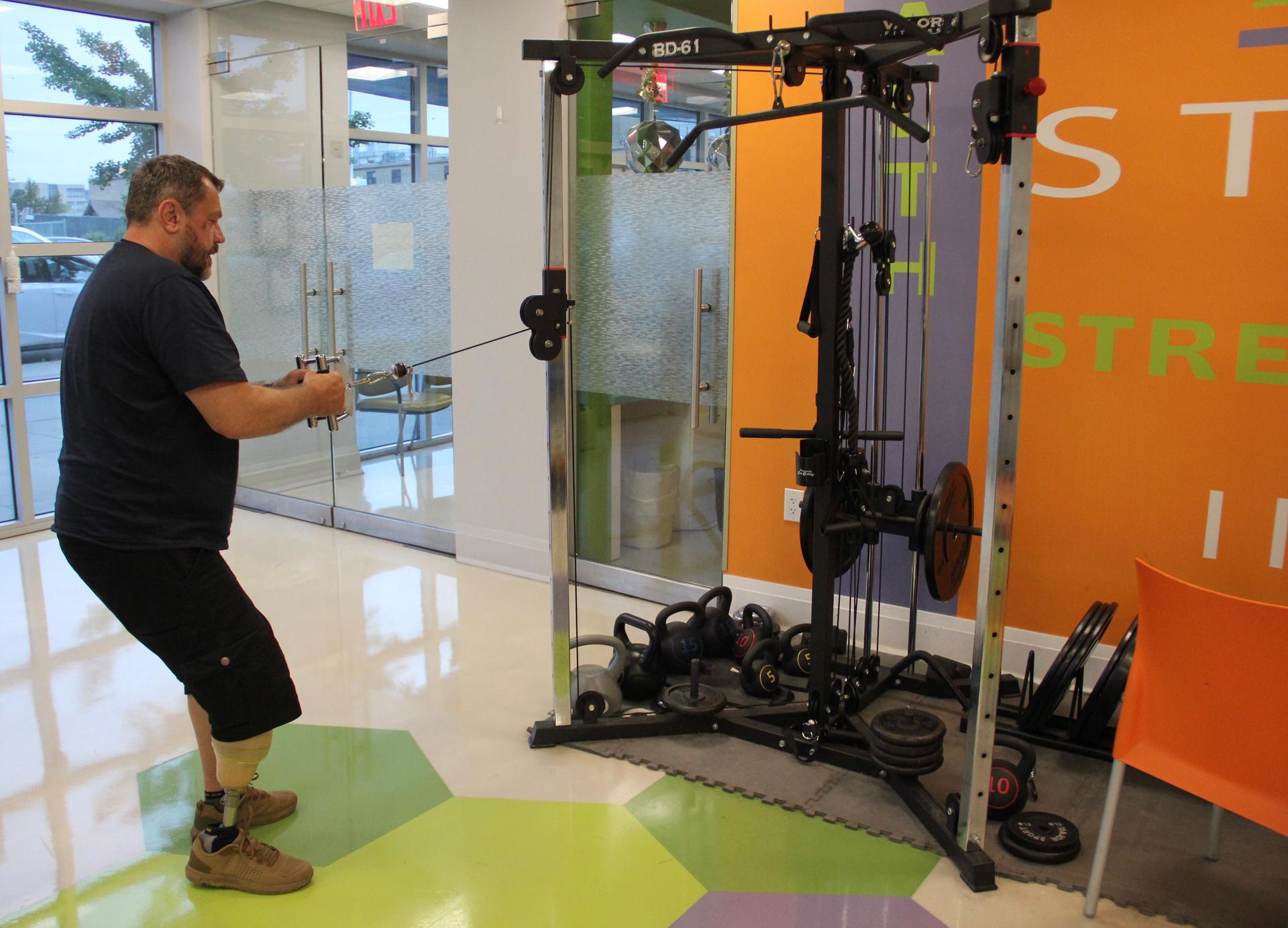
“[The] majority of these guys actually want to go back. So, the physical therapy here is pretty intense,” he said, adding, “So, we want to make sure that they are not just able to walk but they are able to get back to the battlefield if needed.”
Sadovnik said that his time in the US had helped him get on his feet and also make sense of what he lived through. Like the fellow soldiers in his cohort, he wants to go back to the military in some way.
“If there’s the possibility, I could go back and be an instructor and teach the boys about mines,” he said.
Fifty-eight-year-old Ihor Loda-Yakymyshyn is the oldest member of the group. After walking up stairs at rehab, he said that he’s making “colossal progress.”
Before the war, Loda-Yakymyshyn had been living and running a business in Italy. He decided to return to his native Ukraine and join the military. He lost part of his right leg when he was serving near Avdiivka in eastern Ukraine in October.
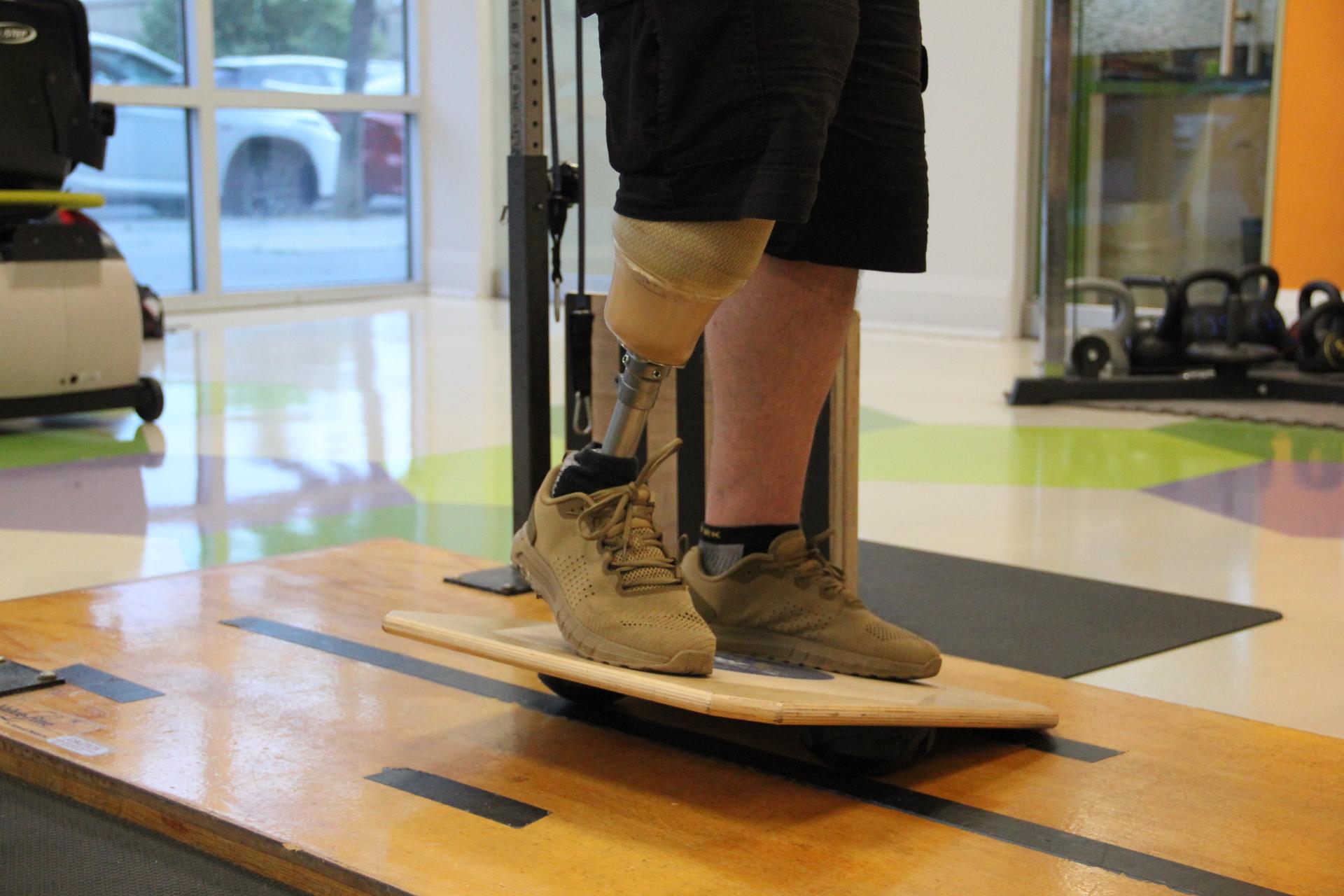
He, too, wants to return to service.
“If I can still be useful in the ranks of the armed forces, then I would, with pleasure, do that, if it’s possible,” he said.
The soldiers are living in a Staten Island house — and they come from different regions of Ukraine and range in age from their early 20s to their late 50s. For all of them, it’s their first time in the United States.
It’s important for them to have a mental break outside of a war zone and get a chance to see New York City, said Kind Deeds’ executive director, Anastasia MacArthur.
“Everybody is welcoming them; everybody is really nice and kind and tries to support them. We want to uplift their spirits by showing them how much we appreciate them, their sacrifices and what they have done,” she said.
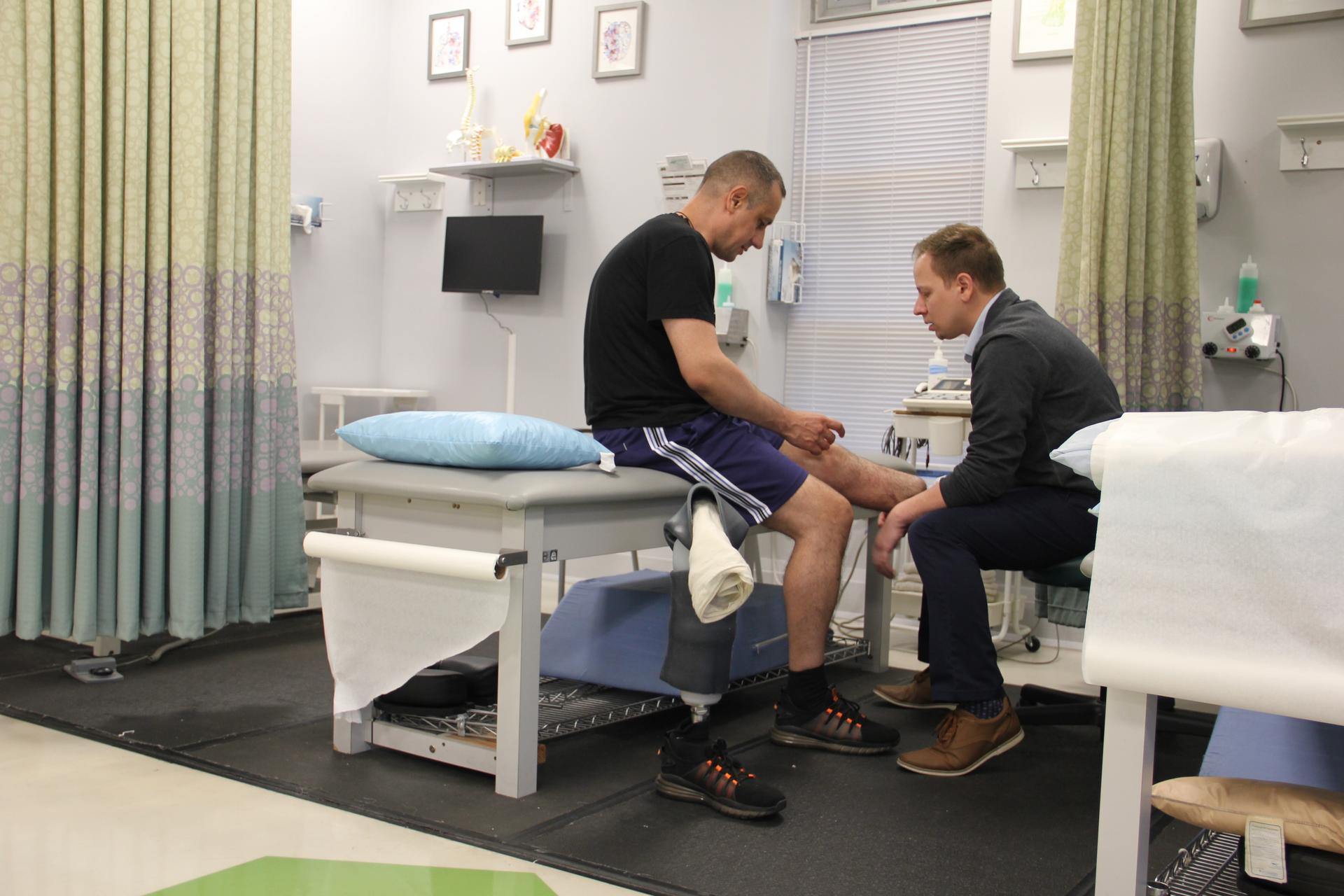
Among the activities, the soldiers have seen Manhattan and its skyscrapers, visited the Statue of Liberty, gone fishing and attended Ukrainian American events.
They’ve been stopped in the street and thanked for their service while wearing their Ukrainian military fatigues, Loda-Yakymyshyn said.
“I really like America, it’s clear it’s a country of opportunities, and America is really strongly helping Ukraine, so I really wanted to see America,” he said.
Currently, Kind Deeds has a waitlist of over 200 people. Other nonprofits have formed in the US to help Ukrainian soldiers as well.
Jon Batzdorff, a prosthetist with over 40 years of experience, has been volunteering in Ukraine since 2014. He serves as a technical adviser to the Ukrainian group Protez Hub, which works on prosthetics and rehabilitation. He recently returned from a training trip to Lviv in western Ukraine, working with some of the most difficult amputee cases with the goal of building local capacity.
“In terms of prosthetics, every day brings new injuries, so as people are being treated and leaving, there are new ones coming in. It’s an ongoing cycle of not just injuries but lives being changed dramatically,” he said.
And while patients are being fitted abroad, Batzdorff said it is not an ideal practice since it is a short-term solution to a long-term problem. He wants to see more resources going toward building capacity in Ukraine.
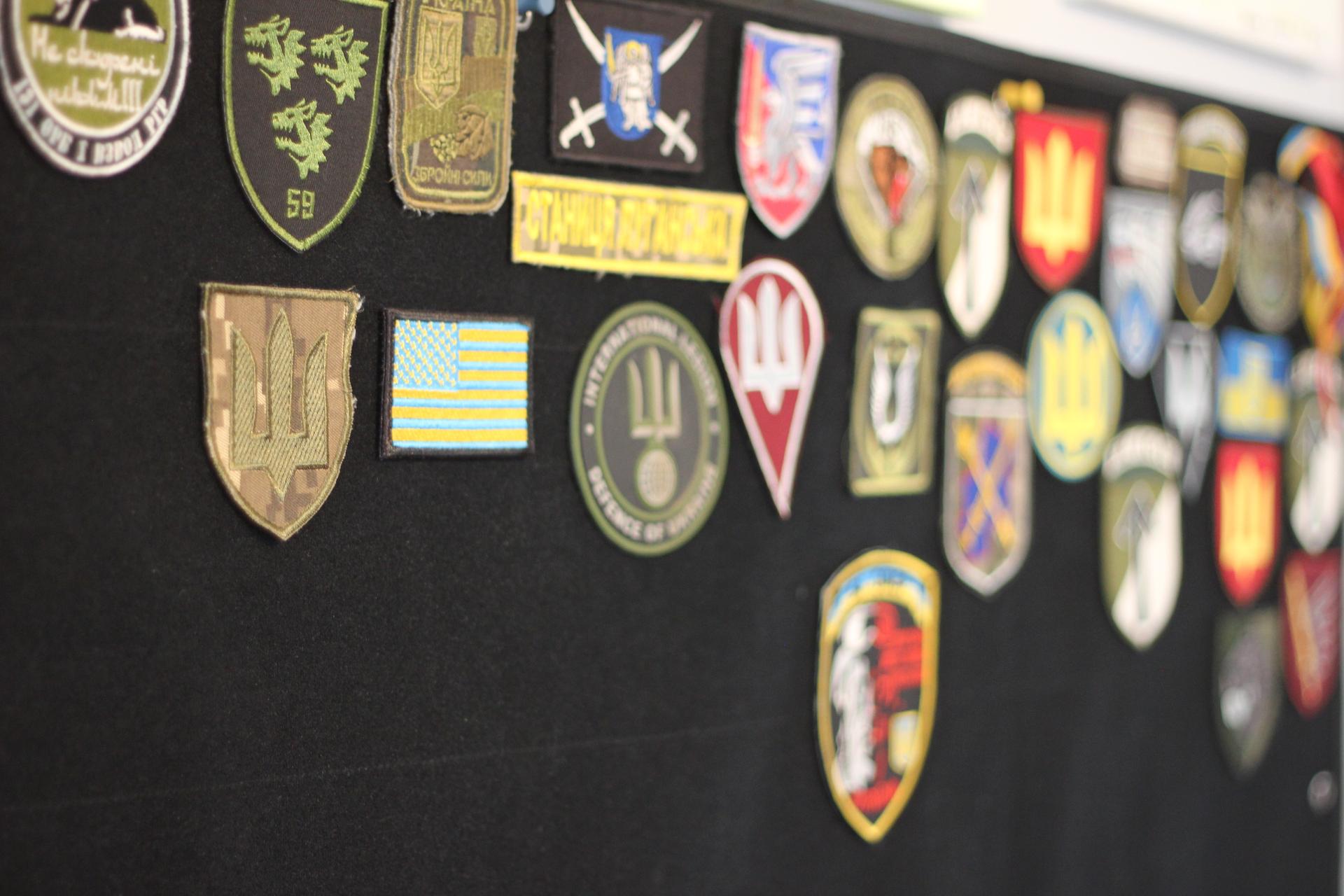
Batzdorff is currently advising a Ukrainian soldier who has decided to go abroad and told him to establish a relationship with the prosthetist he’ll be seeing as soon as he returns to ensure a plan of care and that needed adjustments are taken care of.
“When a person loses an extremity and gets a prosthesis, it’s a lifelong need and they have to have a lifelong solution and that’s really where the challenge is,” he said.
It’s an issue that Kind Deeds’ medical director Shevchenko has thought about. He said that they’ve built relationships with doctors, therapists and prosthetists in Ukraine to continue care.
Shevchenko said that he has high hopes for Ukraine and wants to see his homeland scale and build resources since treatment journeys can be complex.
“I’m very optimistic, and the reason I’m optimistic is because we stay in touch with doctors in Ukraine,” he said.
At 24, Oleksandr Havriliuk is among the youngest soldiers who’ve come to the US through Kind Deeds. He’s a career soldier and was injured by a mine near Kherson in October.
Havriliuk returned to Ukraine recently and said he already had plans for ongoing care and more rehabilitation. He too hopes to again be able to defend his homeland.
“We are aiming to return to a full life, understanding that it won’t be the same as before our injuries, but we need to keep living, to have plans and to achieve them,” he said.
We want to hear your feedback so we can keep improving our website, theworld.org. Please fill out this quick survey and let us know your thoughts (your answers will be anonymous). Thanks for your time!
